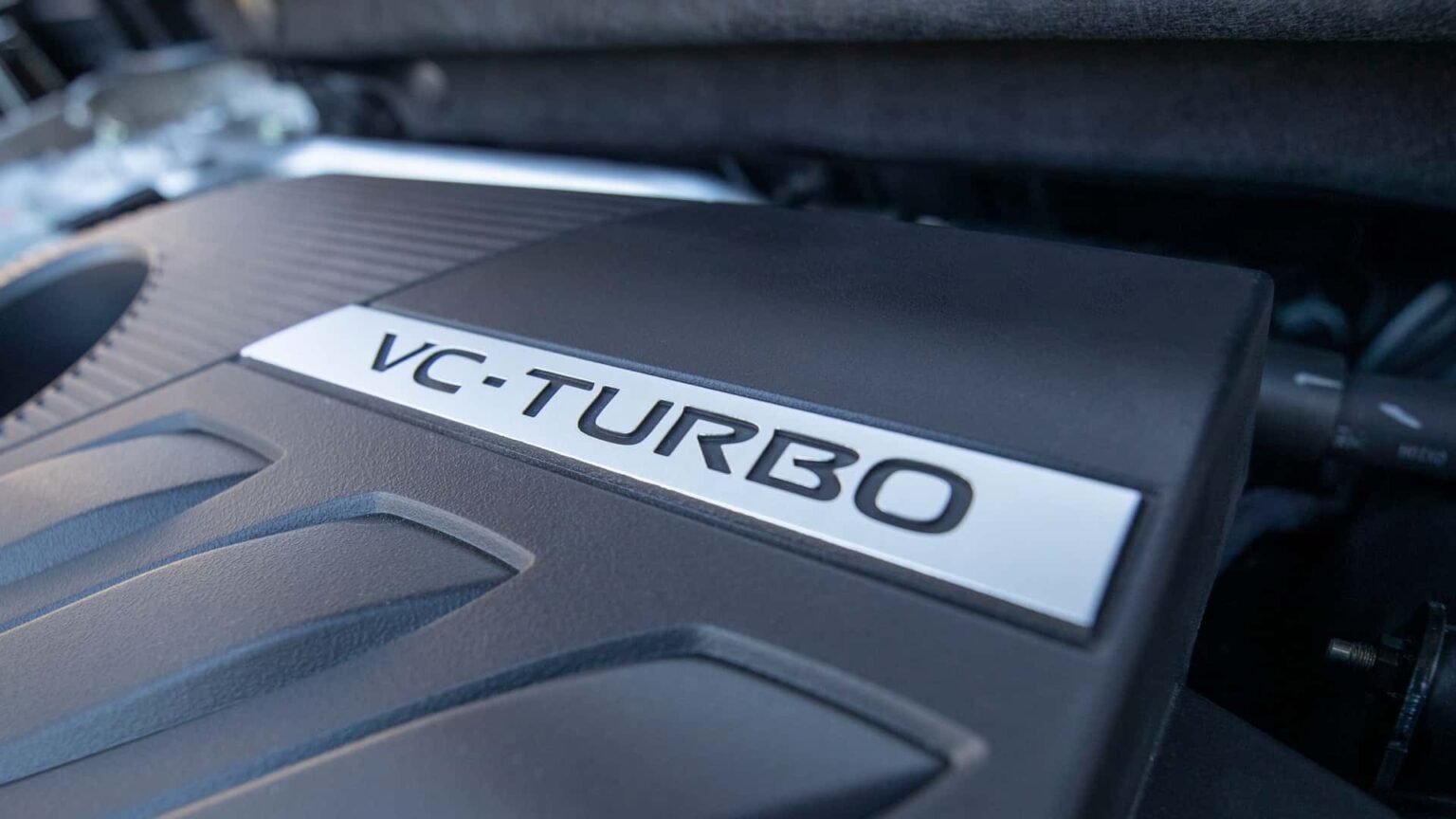Nissan’s VC-Turbo variable-compression engine is a fascinating bit of technology, but it’s proven problematic. The actual mechanism used to alter the compression ratio is a failure point, and Nissan recently had to issue a huge recall for various models equipped with these engines. Now, it’s got a class-action lawsuit to contend with.
Brought to our attention by Carscoops, the suit was filed in Delaware last month for four VC-Turbo owners/lessors. The suit alleges that Nissan knew about the problems with this engine as early as 2019 and that it shouldn’t have sold these supposedly faulty vehicles. In addition, the suit says that Nissan and Infiniti are denying claims for problematic VC-Turbo while they’re still in warranty.
The lawsuit specifies:
Plaintiffs bring this consumer class action lawsuit individually, and on behalf of all similarly situated persons (“Class Members”), who purchased or leased vehicles, including 2021-2023 Nissan Rogue, 2019-2023 Nissan Altima, and 2019-2023 Infiniti QX50 vehicles, equipped with KR15DDT and KR20DDET engines (“Class Vehicle”) designed, manufactured, and distributed NMC and manufactured, distributed, marketed, sold and warranted by NNA.
The Nissan VC-Turbo “multi-link mechanism” that’s proven problematic.
Photo by: Nissan
The VC-Turbo uses what Nissan calls a “multi-link” mechanism to change the position of the piston in relation to the cylinder head. Effectively, each piston has two connecting rods, one connected to the crankshaft and another to a shaft that moves between two positions. Bearings for both the adjustment mechanisms and the crankshaft are prone to failure, which can result in catastrophic engine damage with little or no warning.
NHTSA began an investigation into reports of VC-Turbo engine failures in December 2023, and Nissan issued a recall in June 2025. The near-450,000 vehicles recalled include the 2019-2022 Infiniti QX50, 2022 Infiniti QX55, 2021-2024 Nissan Rogue, and 2019-2020 Nissan Altima.
In its filings with NHTSA, Nissan said only a handful of vehicles are potentially affected, and that the company made improvements to these engines over time. Nissan still uses the VC-Turbo in various models, but these were not recalled.
The class action lawsuit is open to anyone who owns or leases a car equipped with either the 1.5-liter three-cylinder or 2.0-liter four-cylinder VC-Turbo, even those Nissan models that the recall doesn’t cover. The recall fix consists of fixing or replacing engines with metal shavings present in the oil.
Read the full article here



